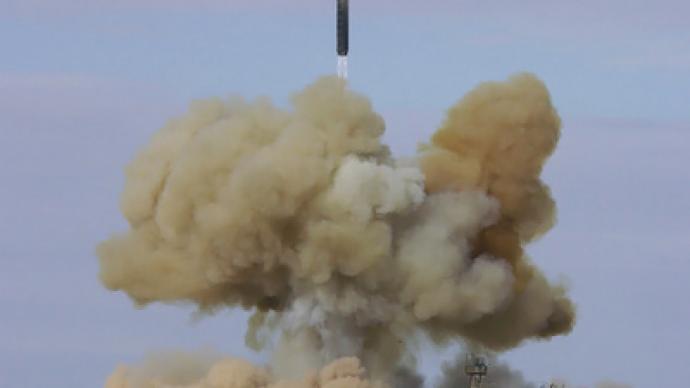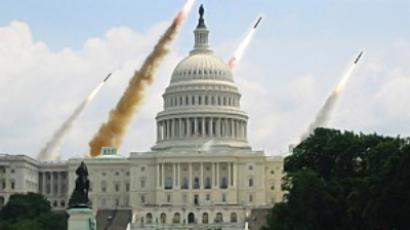Go-ahead to START

The US Senate will ratify the new nuclear arms control deal with Russia before wrapping up for Christmas – according to a senior adviser to the American president.
David Axelrod claims there is enough support on Capitol Hill for the crucial START agreement to be passed. Meanwhile, Jim Manley, a spokesman for Senate Majority leader Harry Reid, said the Senate could begin the ratification process as early as Wednesday, Itar Tass news agency reported.In terms of substance, there is nothing that can stop the new Strategic Arms Reduction Treaty from being ratified. Key questions, concerns, whatever senators had during the course of the past eight months of hearings, have all been addressed.“I think that we have done our homework with regard to the New START treaty and it is in a good situation to ratify it in this lame-duck session,” said the treaty’s chief negotiator, Rose Gottemoeller.The treaty has the unanimous support of the country’s military. Many top officials, former and present, have testified in favor of the treaty. Now, several Republican senators say the votes are there and New START will most likely be ratified by the end of this week.Presidents Barack Obama and Dmitry Medvedev signed the treaty reducing the two countries' atomic arsenals by a third, in April. However, US Republican senators, who made significant gains in the recent mid-terms, have been far from favorable in their reaction to the pact.When the new Congress convenes in January, the Republicans will have a greater presence in the Senate, making approval a tougher job. But with the vote expected after major tax debates, it seems that some are trying to stall the deal.Political bargaining, which has nothing to do with the treaty and its content, could well be in the way of the ratification. And the substance of the treaty, whether it is bad or good for America, has really long stopped being the focus of discussions in Washington.Speaking of bargaining, at some point the Senate’s minority leader, Mitch McConnell, went out and said Republicans would block any of the Democrats’ initiatives if the latter do not extend tax cuts for the rich.So what are the grounds for the situation to be considered a threat to the US national security? According to President Obama, “a world without binding US-Russia arms control treaty is a more dangerous place.”The Obama administration is going out of its way to have the deal ratified. The president’s arguably major foreign policy achievement is on the line. Not only would New START cut the nuclear arsenals of both countries by a third, it is also seen as a symbol of trust between the two nuclear super-powers.“Russia has co-operated with us on critical issues to our national security like Iran sanctions, transit to supply our troops in Afghanistan, working on securing loose nuclear materials,” the US president said in Washington on December 1.“And the relationships and trust that are built from the New START treaty spill over into a whole host of other national security issues that are of vital importance to America,” he concluded.The issue of trust and America’s reputation globally was addressed by John Kerry, the chairman of the Senate Foreign Relations Committee:“Every senator has an obligation to ask that question of themselves over the course of these next days: are we a credible partner? Can other nations rely on us? What happens when the president of the United States negotiates a treaty and it comes back here, and the rest of the world sees that treaty bogged down not in the substance of the treaty, but in the politics of the day?”Democratic strategist Robert Weiner said the Republicans will finally end up passing the START treaty because “they, too, want security and safety in the world.”“It is stupid for Republicans to continue blocking it. I think they are boxed into a corner now, because our national security is at stake,” Weiner said. “Not only dropping the 20,000 warheads that both countries have, but the inspections are necessary so that rogue terrorists don’t get at nuclear weapons. That would be a disaster if terrorists get to these weapons.”
However, Max Bergmann from the Center for American Progress says that though it appears the treaty has secured the needed votes, Republicans may still attempt to delay its ratification. “Senate Republicans look like they are going to delay and block the treaty. They are not saying they oppose it, they just want to push it into next year, which could endanger the treaty,” Bergmann said.
Joel Rubin, deputy director of the National Security Network, believes the ratification of the treaty is essential for President Barack Obama’s image on the international scene.“If it does not get passed, there could be serious consequences for American leadership and the fallout for America’s reputation around the world would be significant,” Rubin told RT. “And if it’s not turned down but delayed, that, too, will signal that President Obama is weak at home.”
Policy analyst James Lewis says failure to ratify the deal will undermine global efforts to prevent the spread of nuclear weapons:“If the treaty is not passed, the most dangerous ramification is that those safeguards will continue and those inspections will continue to lapse between the United States and Russia.“The French have just suspended their bomber fleet, and the UK has moved solely to a submarine launch system. The US and Russia still have all three kinds, and it’s still a very, very dangerous world,” he added.Lewis also noted that the Republicans are simply backed into a corner, and “when push comes to shove they are going to vote for it."
But if the treaty does get bogged down this year, chances are the new Senate, which is going to be more Republican and Obama-hostile, will put off new START indefinitely, maybe for months or even years.














